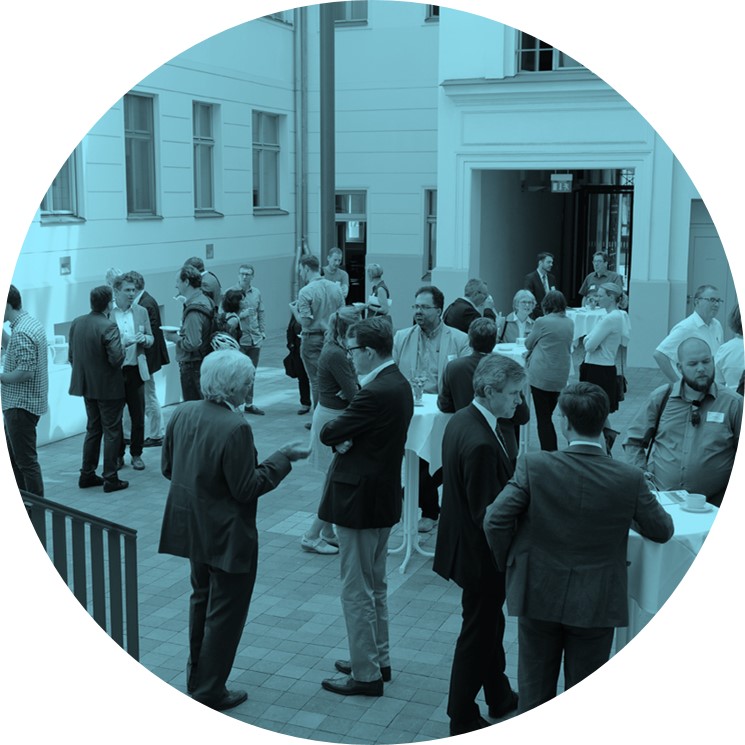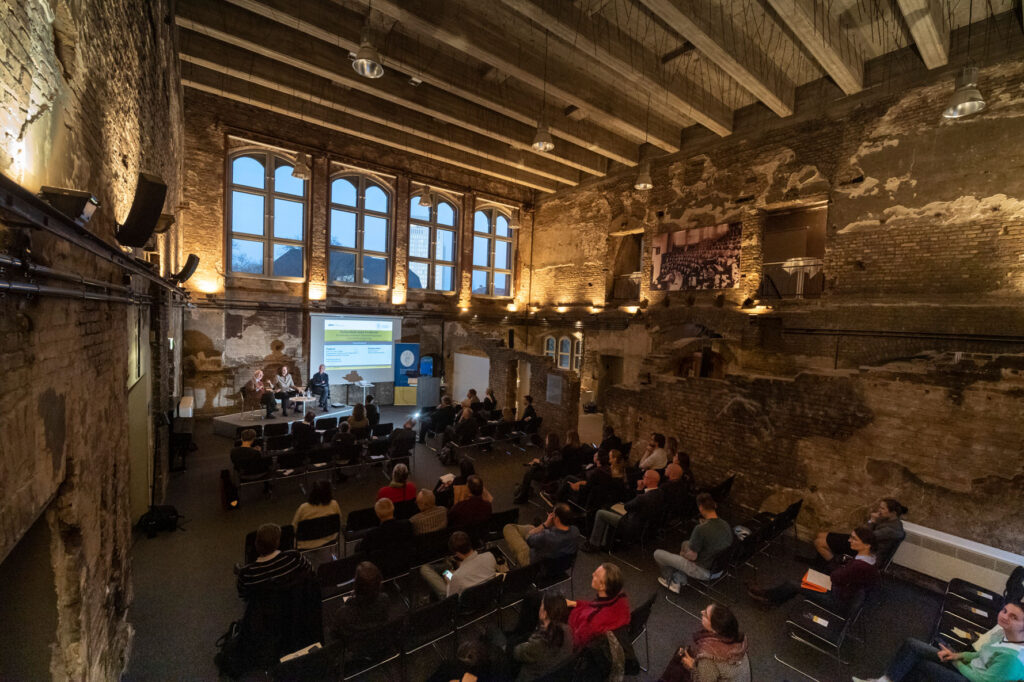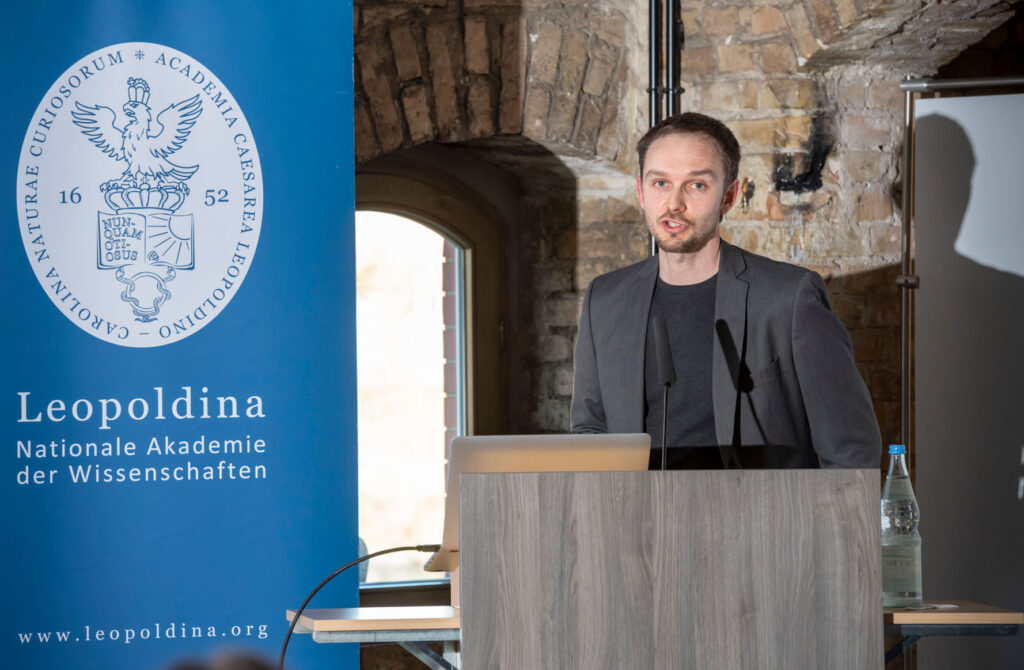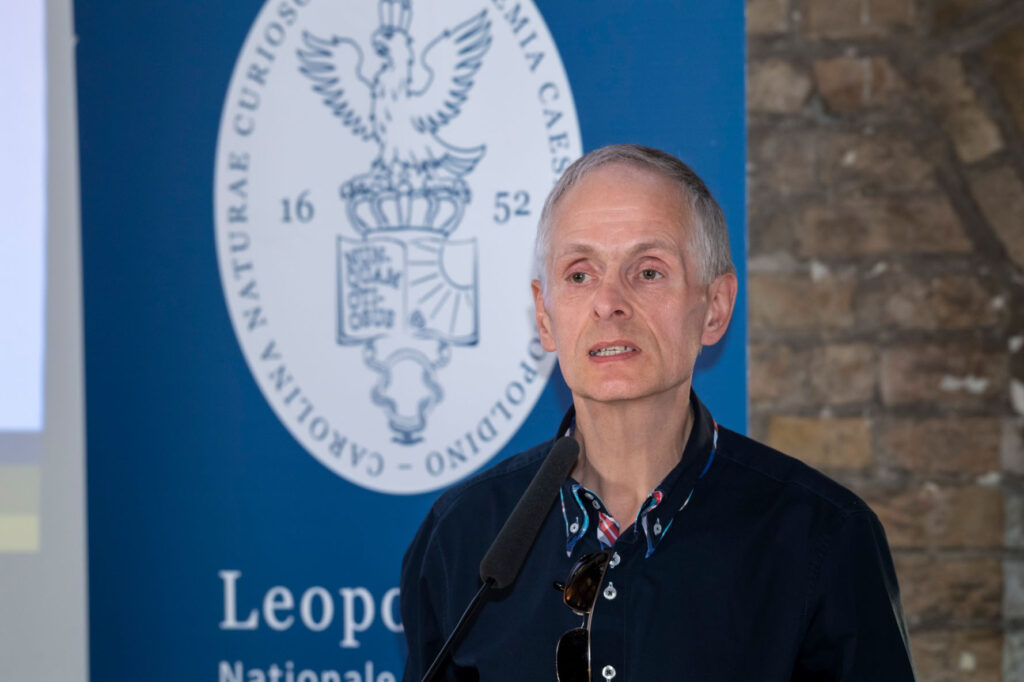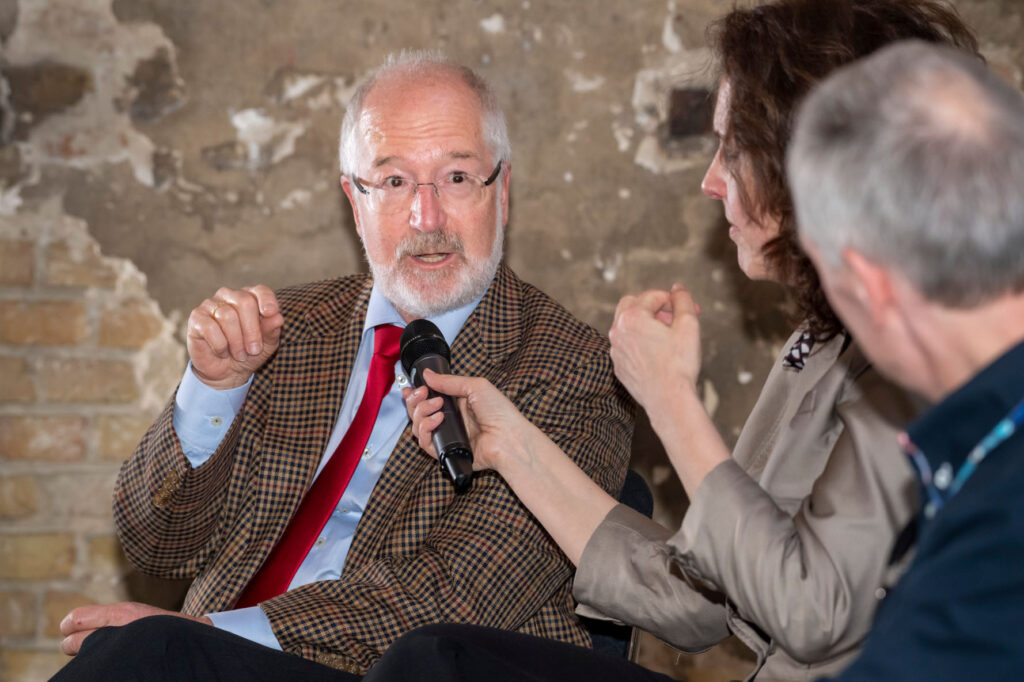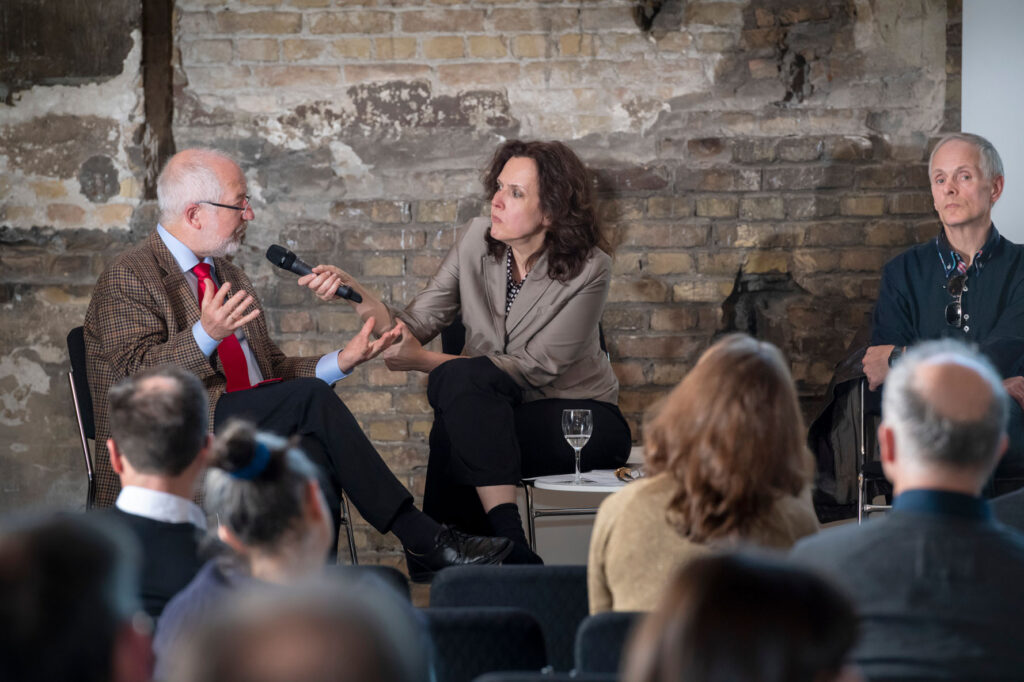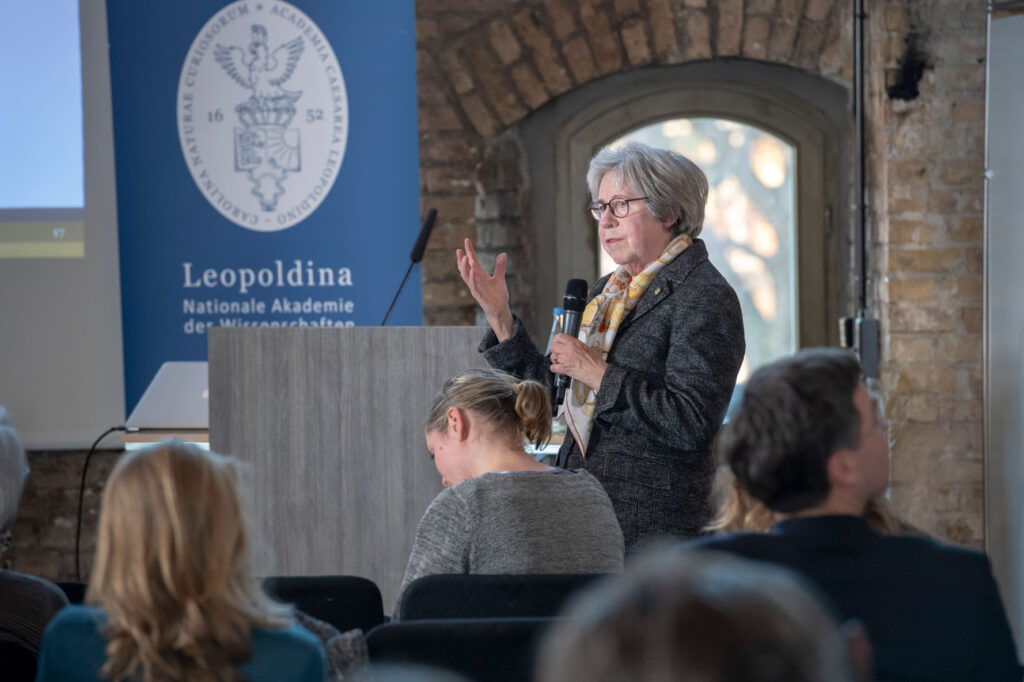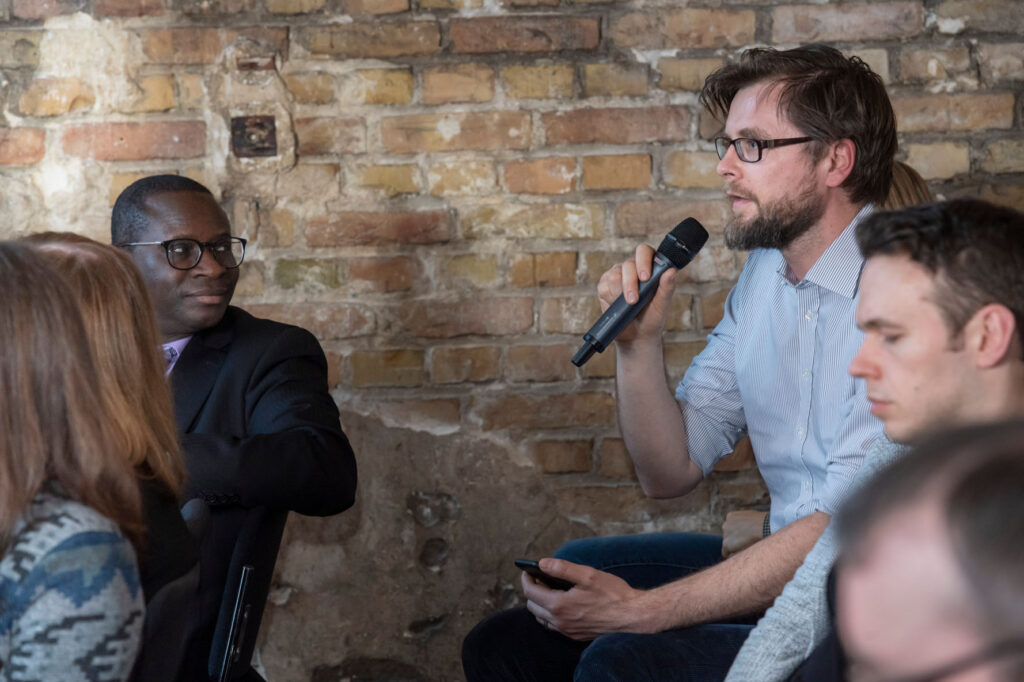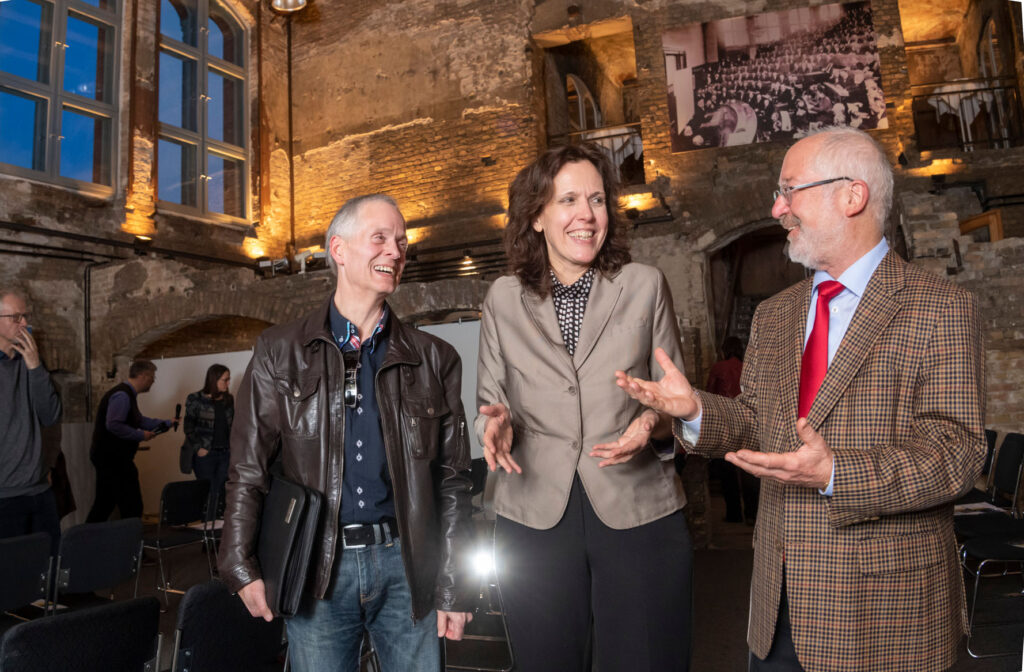On 1 April 2019, the Joint Committee held a discussion evening in Berlin entitled “Security instead of freedom – research between new findings and increased risks” as part of the Alliance of Science Organisations in Germany’s campaign “Freedom is our system” marking the 70th anniversary of the German constitution and the scientific freedom it guarantees.
The event focused on topics such as who is responsible when research findings in the field of artificial intelligence (AI) have unintended harmful consequences and whether self-regulated restrictions for researchers are sufficient to prevent dystopian scenarios of malicious use.
Following an introduction on the work of the Joint Committee by Johannes Fritsch, science fiction author Andreas Brandhorst presented a dystopian scenario on AI in which he postulated that mankind was already on the brink of destruction and in danger of losing control of its own technology. In the concluding panel discussion, chaired by science journalist Verena Gonsch, Andreas Brandhorst and Joint Committee member Jochen Taupitz discussed the general risks of scientific progress for society. Taupitz referred to the great value of scientific freedom and argued in favour of making the most of the opportunities presented by research.
To prevent malicious use, he said restrictions should rather be placed on the application of the findings, e.g. within the framework of criminal law. While Andreas Brandhorst warned against the dangers of overlooking and underestimating the potential for malicious use that is a byproduct of the rapid technological developments of the last 25 years, Jochen Taupitz recommended strengthening self-governance in science, which he regards as a highly effective tool. The mixed audience participated enthusiastically in the discussion. One IT scientist claimed that AI applications are a long way off from being “intelligent” and that researchers prefer to use terms such as “machine learning” or “pattern recognition” in this context. He emphasized that AI has not yet reached the point where it can make independent decisions or manipulate its environment. A medical ethicist recommended the approach taken in medical research, which focuses more on the benefits of new developments rather than on speculative risks.


